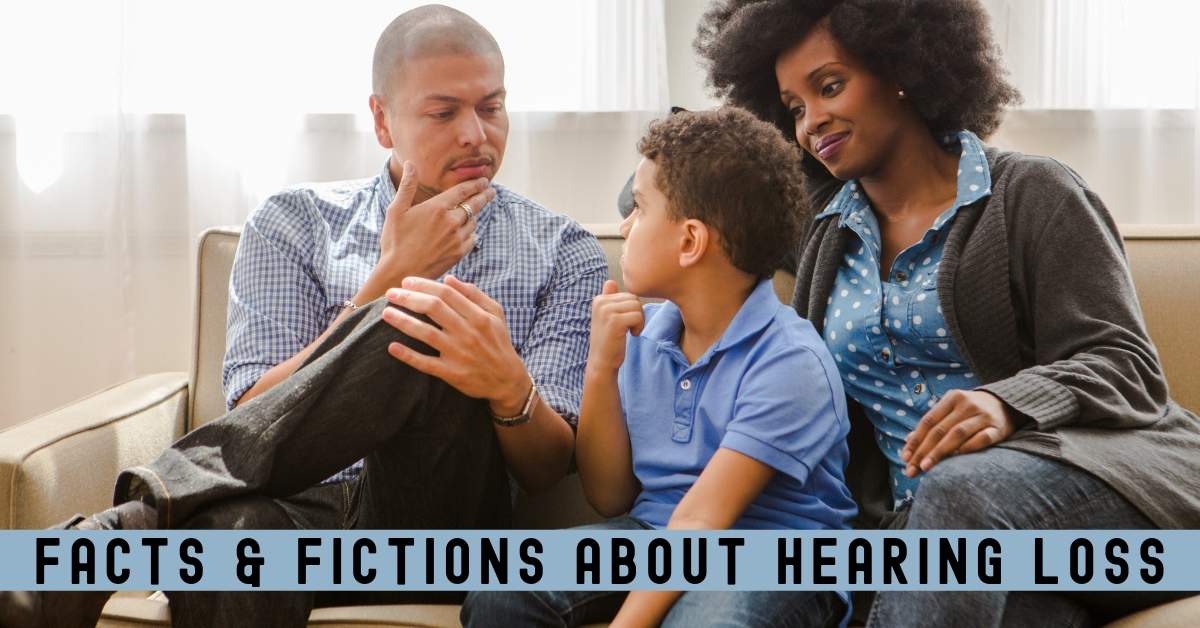- The Benefits of Being Social for Older Americans - February 29, 2020
- Common Excuses for Not Buying Hearing Aids - February 29, 2020
- How Treating Hearing Loss Improves Your Relationships - February 18, 2020
There are many hazardous myths attributed to hearing loss. What we need to know, as opposed to what truly is, has created a divide that is detrimental to our health. The following are five myths debunked for your information and education in the health of your hearing.
Myth #1 – Only older people suffer from hearing loss
Truth: Hearing loss occurs as we age and it is affected by our life practices, environmental factors, genetics, and social activities. In fact, 40% of the population, under the age of 60 is now becoming the fastest growing segment that is affected by hearing loss. The World Health Organization (WHO) cites: “1.1 billion young people (aged between 12–35 years) are at risk of hearing loss due to exposure to noise in recreational settings.” The previous stereotypes of hearing afflicted people have now shifted to a younger age range as the world becomes a noisier place.
Myth #2 – Hearing loss is not a major health concern
Truth: It is estimated that by 2050 almost a billion people worldwide will suffer from detrimental hearing loss. In the US, hearing loss is more prevalent than diabetes, cancer or vision impairment. According to the National Institute on Deafness and Other Communicative Diseases (NICDC), “One in eight people in the United States (13 percent, or 30 million) aged 12 years or older has hearing loss in both ears, based on standard hearing examinations.”
The danger also lies not only in a lack of public awareness but also the invisible nature of the condition. An estimate by the WHO is a $750 billion loss annually due to the effects of neglected hearing loss.
Myth #3 – Hearing aids are a last resort
Truth: If you are suffering from symptoms of hearing loss and leave them untreated your condition will worsen incurring permanent damage. The brain needs to relearn sound if the natural hearing process is corrupted. Having your hearing loss diagnosed early is the most effective way for hearing aids to help your brain to continue to register and interpret sound naturally.
Hearing aids increase the awareness of sounds and their sources, but it doesn’t restore damaged hearing to its normal state. It is with practice, proper fitting, and fine-tuning that the user must undergo to attain a fuller hearing experience sooner rather than later. Their efficacy is also dependent upon the degree of hearing degradation the user has. The longer hearing loss is ignored the worse the permanent damage is so it is up to you to get tested and be able to use hearing aids to maintain your hearing health.
Myth #4 – Just speak loudly to people with hearing loss
Truth: If you have ridden public transport or attended an outdoor event with damaged public sound systems then you are aware that amplified sound doesn’t mean sound clarity. If we view our ears are our body’s microphones, then it follows that if the sound is distorted the louder the sound the louder the distortion. Speaking louder can help if you also slow down your speech, face the person you are talking to and rephrase what you are saying.
As the technology for hearing aids progress, it clarifies the sounds we receive and to eliminate background noise so the user can experience a more natural hearing experience. Right now, people that use hearing aids still have to work with distinguishing and clarifying the important sounds as they occur each and every time.
Myth #5 – Hearing loss is just not that big a deal
Truth: It is only when the effects of hearing loss start to lessen the quality of our relationships and lower the productivity of our professional lives that we seem to notice. We need to understand that our hearing health impacts our social interactions, communication, and income. Living with hearing loss is linked to greater social isolation due to the fatigue from straining to hear. Isolation leaves us open to depression and demise in our mental health. It is also an established link by the medical community to lower income levels and a decline in work productivity. Some of the physical conditions that can be created by hearing loss are dizziness, a constant ringing in the ear and a loss of balance.
All Ear Doctors
Are you experiencing changes in your hearing? Has it been awhile since your last hearing test? At All Ear Doctors, we provide comprehensive hearing health services, from tests to fittings. Contact us today to schedule an appointment.

